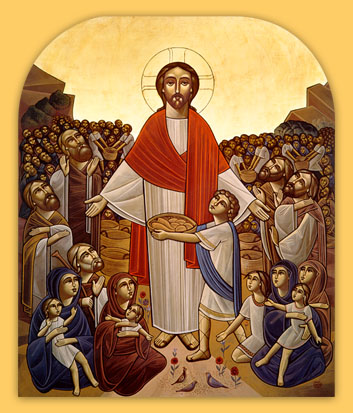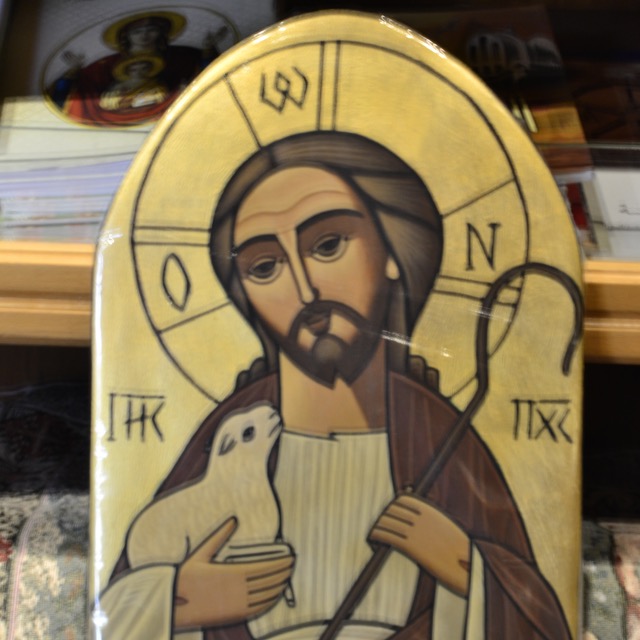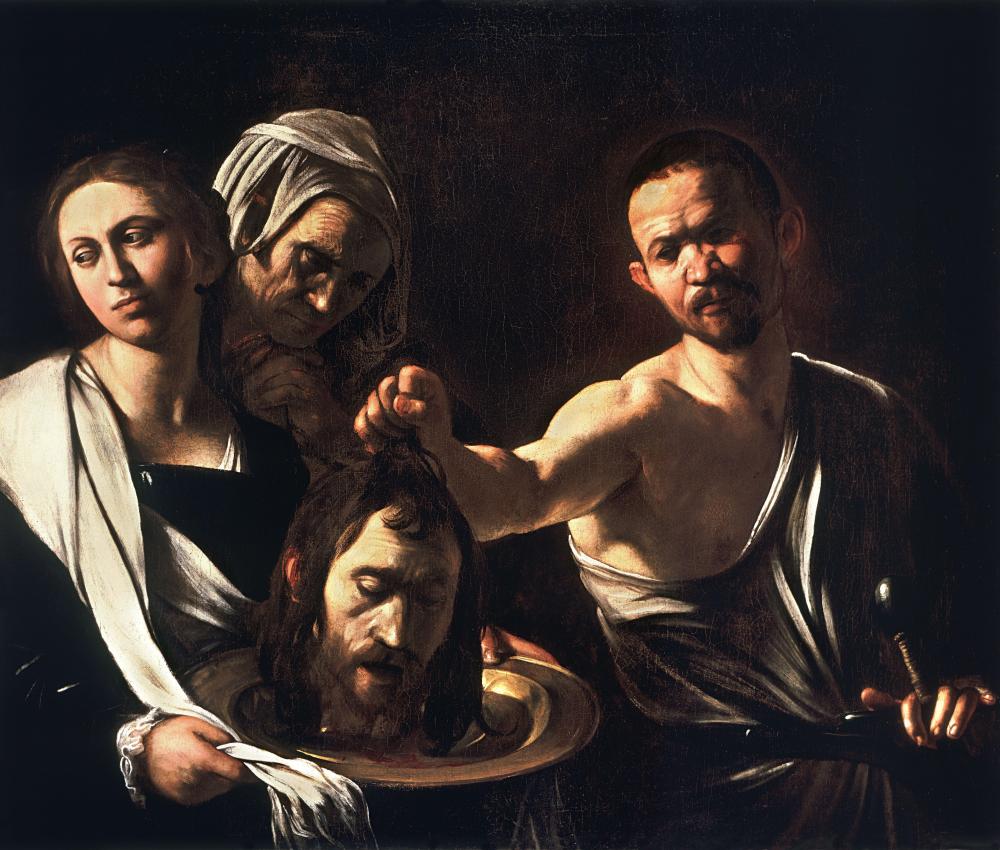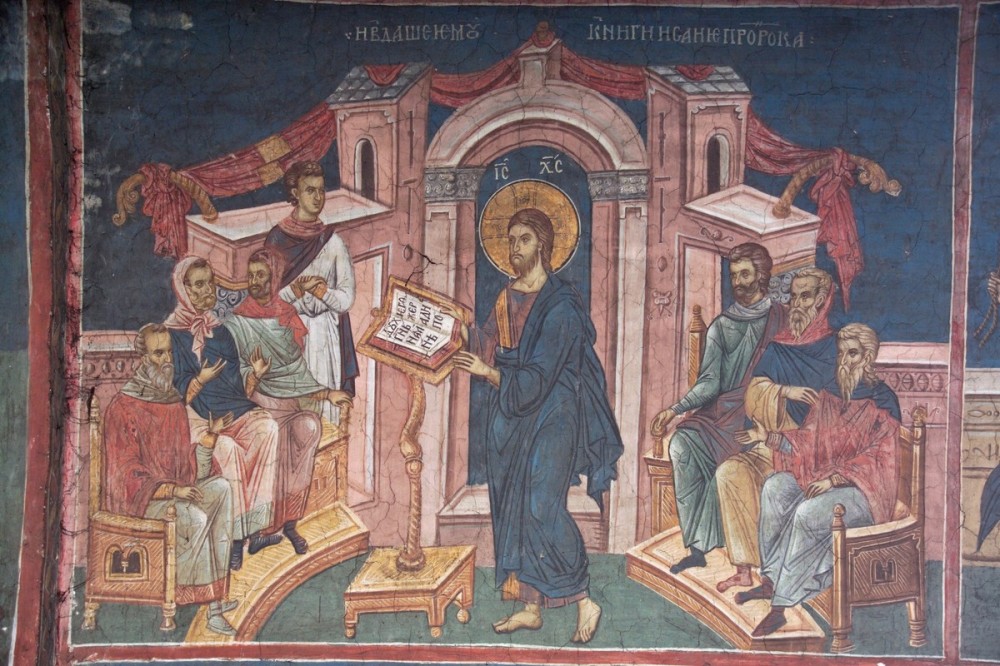Listen, O my son, to the precepts of thy master, and incline the ear of thy heart, and cheerfully receive and faithfully execute the admonitions of thy loving Father, that by the toil of obedience thou mayest return to Him from whom by the sloth of disobedience thou hast gone away.
To thee, therefore, my speech is now directed, who, giving up thine own will, takest up the strong and most excellent arms of obedience, to do battle for Christ the Lord, the true King.
In the first place, beg of Him by most earnest prayer, that He perfect whatever good thou dost begin, in order that He who hath been pleased to count us in the number of His children, need never be grieved at our evil deeds. For we ought at all times so to serve Him with the good things which He hath given us, that He may not, like an angry father, disinherit his children, nor, like a dread lord, enraged at our evil deeds, hand us over to everlasting punishment as most wicked servants, who would not follow Him to glory.
Let us then rise at length, since the Scripture arouseth us, saying: “It is now the hour for us to rise from sleep” (Rom 13:11); and having opened our eyes to the deifying light, let us hear with awestruck ears what the divine voice, crying out daily, doth admonish us, saying: “Today, if you shall hear his voice, harden not your hearts” (Ps 94[95]:8). And again: “He that hath ears to hear let him hear what the Spirit saith to the churches” (Rev 2:7). And what doth He say?—”Come, children, hearken unto me, I will teach you the fear of the Lord” (Ps 33[34]:12). “Run whilst you have the light of life, that the darkness of death overtake you not” (Jn 12:35).
And the Lord seeking His workman in the multitude of the people, to whom He proclaimeth these words, saith again: “Who is the man that desireth life and loveth to see good days” (Ps 33[34]:13)? If hearing this thou answerest, “I am he,” God saith to thee: “If thou wilt have true and everlasting life, keep thy tongue from evil, and thy lips from speaking guile; turn away from evil and do good; seek after peace and pursue it” (Ps 33[34]:14-15). And when you shall have done these things, my eyes shall be upon you, and my ears unto your prayers. And before you shall call upon me I will say: “Behold, I am here” (Is 58:9).
What, dearest brethren, can be sweeter to us than this voice of the Lord inviting us? See, in His loving kindness, the Lord showeth us the way of life. Therefore, having our loins girt with faith and the performance of good works, let us walk His ways under the guidance of the Gospel, that we may be found worthy of seeing Him who hath called us to His kingdom (cf 1 Thes 2:12).
If we desire to dwell in the tabernacle of His kingdom, we cannot reach it in any way, unless we run thither by good works. But let us ask the Lord with the Prophet, saying to Him: “Lord, who shall dwell in Thy tabernacle, or who shall rest in Thy holy hill” (Ps 14[15]:1)?
After this question, brethren, let us listen to the Lord answering and showing us the way to this tabernacle, saying: “He that walketh without blemish and worketh justice; he that speaketh truth in his heart; who hath not used deceit in his tongue, nor hath done evil to his neighbor, nor hath taken up a reproach against his neighbor” (Ps 14[15]:2-3), who hath brought to naught the foul demon tempting him, casting him out of his heart with his temptation, and hath taken his evil thoughts whilst they were yet weak and hath dashed them against Christ (cf Ps 14[15]:4; Ps 136[137]:9); who fearing the Lord are not puffed up by their goodness of life, but holding that the actual good which is in them cannot be done by themselves, but by the Lord, they praise the Lord working in them (cf Ps 14[15]:4), saying with the Prophet: “Not to us, O Lord, not to us; by to Thy name give glory” (Ps 113[115:1]:9). Thus also the Apostle Paul hath not taken to himself any credit for his preaching, saying: “By the grace of God, I am what I am” (1 Cor 15:10). And again he saith: “He that glorieth, let him glory in the Lord” (2 Cor 10:17).
Hence, the Lord also saith in the Gospel: “He that heareth these my words and doeth them, shall be likened to a wise man who built his house upon a rock; the floods came, the winds blew, and they beat upon that house, and it fell not, for it was founded on a rock” (Mt 7:24-25). The Lord fulfilling these words waiteth for us from day to day, that we respond to His holy admonitions by our works. Therefore, our days are lengthened to a truce for the amendment of the misdeeds of our present life; as the Apostle saith: “Knowest thou not that the patience of God leadeth thee to penance” (Rom 2:4)? For the good Lord saith: “I will not the death of the sinner, but that he be converted and live” (Ezek 33:11).
Now, brethren, that we have asked the Lord who it is that shall dwell in His tabernacle, we have heard the conditions for dwelling there; and if we fulfil the duties of tenants, we shall be heirs of the kingdom of heaven. Our hearts and our bodies must, therefore, be ready to do battle under the biddings of holy obedience; and let us ask the Lord that He supply by the help of His grace what is impossible to us by nature. And if, flying from the pains of hell, we desire to reach life everlasting, then, while there is yet time, and we are still in the flesh, and are able during the present life to fulfil all these things, we must make haste to do now what will profit us forever.
We are, therefore, about to found a school of the Lord’s service, in which we hope to introduce nothing harsh or burdensome. But even if, to correct vices or to preserve charity, sound reason dictateth anything that turneth out somewhat stringent, do not at once fly in dismay from the way of salvation, the beginning of which cannot but be narrow. But as we advance in the religious life and faith, we shall run the way of God’s commandments with expanded hearts and unspeakable sweetness of love; so that never departing from His guidance and persevering in the monastery in His doctrine till death, we may by patience share in the sufferings of Christ, and be found worthy to be coheirs with Him of His kingdom.
Obsculta, o fili, praecepta magistri, et inclina aurem cordis tui, et admonitionem pii patris libenter excipe et efficaciter comple, [2] ut ad eum per oboedientiae laborem redeas, a quo per inoboedientiae desidiam recesseras. [3] Ad te ergo nunc mihi sermo dirigitur, quisquis abrenuntians propriis voluntatibus, Domino Christo vero regi militaturus, oboedientiae fortissima atque praeclara arma sumis.
[4] In primis, ut quicquid agendum inchoas bonum, ab eo perfici instantissima oratione deposcas, [5] ut qui nos iam in filiorum dignatus est numero computare non debet aliquando de malis actibus nostris contristari. [6] Ita enim ei omni tempore de bonis suis in nobis parendum est ut non solum iratus pater suos non aliquando filios exheredet, [7] sed nec, ut metuendus dominus irritatus a malis nostris, ut nequissimos servos perpetuam tradat ad poenam qui eum sequi noluerint ad gloriam.
[8] Exsurgamus ergo tandem aliquando excitante nos scriptura ac dicente: Hora est iam nos de somno surgere, [9] et apertis oculis nostris ad deificum lumen, attonitis auribus audiamus divina cotidie clamans quid nos admonet vox dicens: [10] Hodie si vocem eius audieritis, nolite obdurare corda vestra. [11] Et iterum: Qui habet aures audiendi audiat quid spiritus dicat ecclesiis. [12] Et quid dicit? Venite, filii, audite me; timorem Domini docebo vos [13] Currite dum lumen vitae habetis, ne tenebrae mortis vos comprehendant.
[14] Et quaerens Dominus in multitudine populi cui haec clamat operarium suum, iterum dicit: [15] Quis est homo qui vult vitam et cupit videre dies bonos? [16] Quod si tu audiens respondeas: Ego, dicit tibi Deus: [17] Si vis habere veram et perpetuam vitam, prohibe linguam tuam a malo et labia tua ne loquantur dolum; deverte a malo et fac bonum, inquire pacem et sequere eam. [18] Et cum haec feceritis, oculi mei super vos et aures meas ad preces vestras, et antequam me invocetis dicam vobis: Ecce adsum. [19] Quid dulcius nobis ab hac voce Domini invitantis nos, fratres carissimi? [20] Ecce pietate sua demonstrat nobis Dominus viam vitae.
[21] Succinctis ergo fide vel observantia bonorum actuum lumbis nostris, per ducatum evangelii pergamus itinera eius, ut mereamur eum qui nos vocavit in regnum suum videre.
[22] In cuius regni tabernaculo si volumus habitare, nisi illuc bonis actibus curritur, minime pervenitur. [23] Sed interrogemus cum propheta Dominum dicentes ei: Domine, quis habitabit in tabernaculo tuo, aut quis requiescet in monte sancto tuo? [24] Post hanc interrogationem, fratres, audiamus Dominum respondentem et ostendentem nobis viam ipsius tabernaculi, [25] dicens: Qui ingreditur sine macula et operatur iustitiam; [26] qui loquitur veritatem in corde suo, qui non egit dolum in lingua sua; [27] qui non fecit proximo suo malum, qui opprobrium non accepit adversus proximum suum; [28] qui malignum diabolum aliqua suadentem sibi, cum ipsa suasione sua a conspectibus cordis sui respuens, deduxit ad nihilum, et parvulos cogitatos eius tenuit et allisit ad Christum; [29] qui, timentes Dominum, de bona observantia sua non se reddunt elatos, sed ipsa in se bona non a se posse sed a Domino fieri existimantes, [30] operantem in se Dominum magnificant, illud cum propheta dicentes: Non nobis, Domine, non nobis, sed nomini tuo da gloriam; [31] sicut nec Paulus apostolus de praedicatione sua sibi aliquid imputavit, dicens: Gratia Dei sum id quod sum; [32] et iterum ipse dicit: Qui gloriatur, in Domino glorietur. [33] Unde et Dominus in evangelio ait: Qui audit verba mea haec et facit ea, similabo eum viro sapienti qui aedificavit domum suam super petram; [34] venerunt flumina, flaverunt venti, et impegerunt in domum illam, et non cecidit, quia fundata erat super petram.
[35] Haec complens Dominus exspectat nos cotidie his suis sanctis monitis factis nos respondere debere. [36] Ideo nobis propter emendationem malorum huius vitae dies ad indutias relaxantur, [37] dicente Apostolo: An nescis quia patientia Dei ad paenitentiam te adducit? [38] Nam pius Dominus dicit: Nolo mortem peccatoris, sed convertatur et vivat.
[39] Cum ergo interrogassemus Dominum, fratres, de habitatore tabernaculi eius, audivimus habitandi praeceptum, sed si compleamus habitatoris officium. [40] Ergo praeparanda sunt corda nostra et corpora sanctae praeceptorum oboedientiae militanda, [41] et quod minus habet in nos natura possibile, rogemus Dominum ut gratiae suae iubeat nobis adiutorium ministrare. [42] Et si, fugientes gehennae poenas, ad vitam volumus pervenire perpetuam, [43] dum adhuc vacat et in hoc corpore sumus et haec omnia per hanc lucis vitam vacat implere, [44] currendum et agendum est modo quod in perpetuo nobis expediat.
[45] Constituenda est ergo nobis dominici schola servitii. [46] In qua institutione nihil asperum, nihil grave, nos constituturos speramus; [47] sed et si quid paululum restrictius, dictante aequitatis ratione, propter emendationem vitiorum vel conservationem caritatis processerit, [48] non ilico pavore perterritus refugias viam salutis quae non est nisi angusto initio incipienda. [49] Processu vero conversationis et fidei, dilatato corde inenarrabili dilectionis dulcedine curritur via mandatorum Dei, [50] ut ab ipsius numquam magisterio discedentes, in eius doctrinam usque ad mortem in monasterio perseverantes, passionibus Christi per patientiam participemur, ut et regno eius mereamur esse consortes. Amen.



